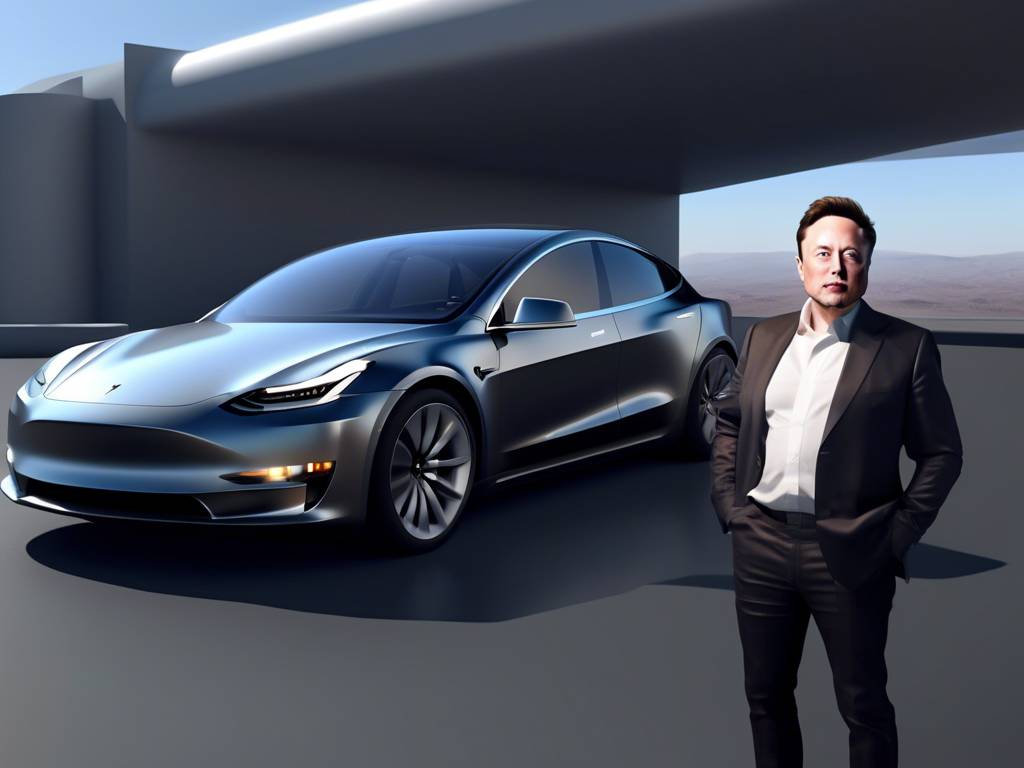Key Points About Elon Musk’s OpenAI Lawsuit
Vinod Khosla, founder of Khosla Ventures, shares his perspective on Elon Musk’s lawsuit against OpenAI in a conversation with Ed Ludlow and Caroline Hyde. Khosla criticizes Musk’s decision to sue OpenAI and expresses his views on the matter. He highlights Musk’s alleged breach of contract and fiduciary duty as the main issues in the case.
Elon Musk’s Misconceptions about OpenAI
Khosla points out that Musk initially wanted OpenAI to raise up to $1 billion but later changed his mind, wanting OpenAI to become a subsidiary of Tesla instead. This shift in direction led to conflict between Musk and OpenAI, causing legal disputes. Khosla emphasizes the importance of staying true to original goals and commitments in business relationships.
Legal Implications and OpenAI’s Future
Khosla discusses the legal grounds of the case and the survival challenges faced by OpenAI. He stresses the need for control over innovative technologies and the impact of open-source models on economic sustainability. Khosla also shares his views on OpenAI’s partnership with Microsoft, affirming his confidence in the collaboration.
– Khosla’s thoughts on Elon Musk’s lawsuit against OpenAI
– Musk’s alleged breach of contract and fiduciary duty
– Shift in direction from raising funds to becoming a subsidiary of Tesla
– Legal implications and survival challenges for OpenAI
– Economic sustainability of open-source models in tech
– OpenAI’s partnership with Microsoft and its benefits
The Role of Open Source in Technology Development
Khosla reflects on his experience as an early investor in OpenAI and his involvement in the company’s decisions. He sheds light on an independent report that cleared the CEO of any wrongdoing and criticized the board’s actions. Khosla also shares his perspective on the revamped board of OpenAI, emphasizing the importance of diversity and expertise in decision-making.
Implications of OpenAI’s Evolution and Diversity
Khosla discusses the evolving nature of OpenAI and its mission to benefit humanity through AI advancements. He explains the need for a for-profit arm in such ventures and highlights the common global practice of combining non-profit and for-profit entities. Khosla addresses concerns raised by the Mozilla Foundation founder about the balance between for-profit and non-profit objectives in organizations like OpenAI.
– Khosla’s involvement in OpenAI and relationship with the company
– Independent report clearing the CEO of wrongdoing
– Diversity and expertise in the revamped OpenAI board
– Balancing for-profit and non-profit goals in organizations
– Managing the transition towards AI for the benefit of humanity
The Pace of AGI Development and Caution in AI Progress
Khosla discusses concerns about the rapid pace of AI development and the need for security research in the field. He emphasizes the potential benefits of AI advancements for humanity while acknowledging the importance of caution in technological progress. Khosla advocates for responsible AI development without compromising the pace of innovation.
Elon Musk’s Approach to Competition and Innovation
Khosla shares his message to Elon Musk, urging him to focus on hiring great people and building technology to compete effectively. He emphasizes the limitations of litigation in advancing AI goals and encourages Musk to prioritize innovation and collaboration over legal battles. Khosla underscores the importance of constructive competition and the ethical advancement of AI technology for the greater good.
Hot Take: Ethical Innovation Over Legal Battles
In conclusion, Khosla’s insights shed light on the complexities of the legal dispute between Elon Musk and OpenAI. He advocates for a focus on innovation, collaboration, and responsible AI development to benefit humanity. Khosla’s message to Musk reflects a forward-thinking approach to competition and technology advancement, highlighting the importance of ethical stewardship in the AI industry.





 By
By
 By
By
 By
By

 By
By
 By
By